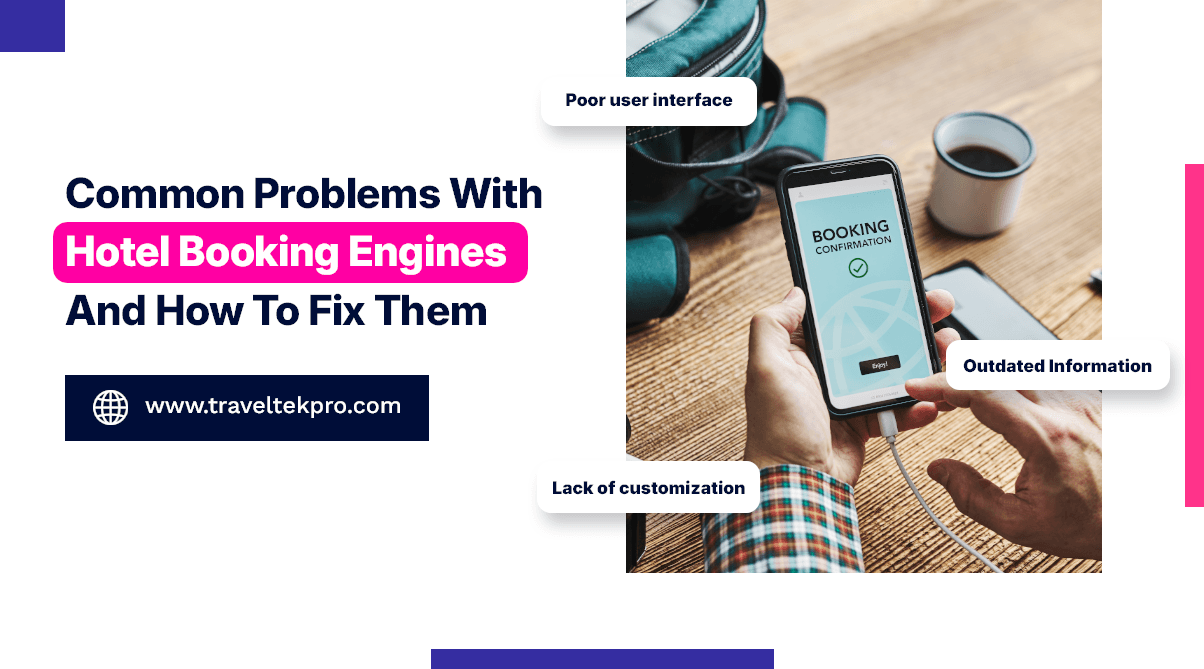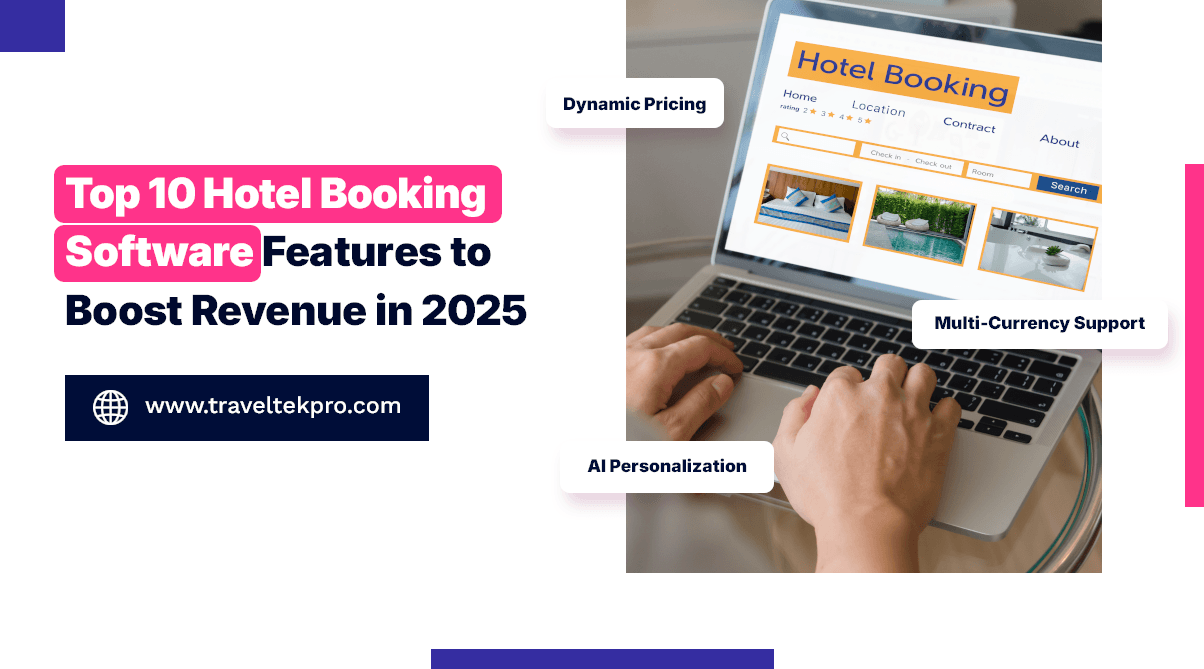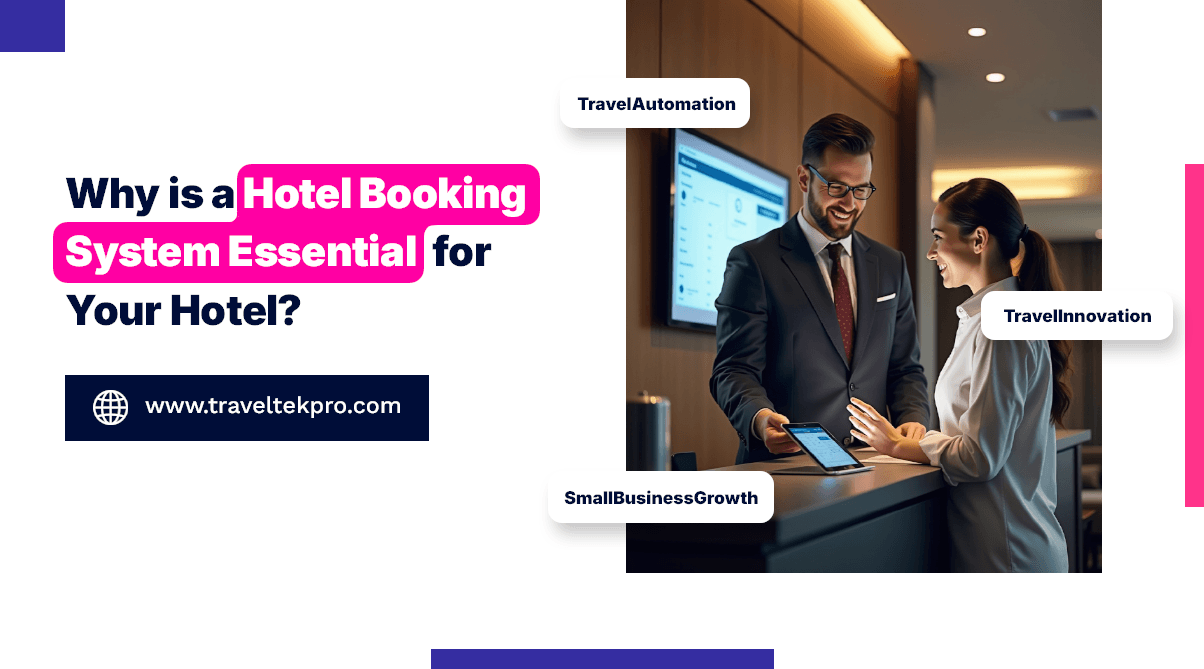Common problems with hotel booking engines and how to fix them
Planning a vacation is really exciting. A lot of people dream about the perfect stay, cozy beds, amazing views, and smooth service. But all that excitement can quickly fade if you face issues while booking a room online. Just imagine, clicking on a hotel’s website, waiting for ages for a page to load or even trying to book home only to find out it’s not really available. Frustrating right? That’s where your hotel booking engine truly comes into the picture. In today’s digital world your booking engine is not just as important as our front desk, maybe even more. It’s often the first real interaction that your guest has with your hotel.
If it doesn’t work smoothly your guests will not even hesitate to click away and book somewhere else. No doubt booking systems are very important for running a hotel but they also come with their own fair share of issues. From slow loading times to poor mobile experience these issues can hurt your bookings and reputation undoubtedly. In this guide you can learn everything about the most common problems with hotel booking engines and how you can fix them easily.
Common problems with hotel booking engines
1. Slow loading times and poor performance
One of the biggest turnoffs for your guest is a slow website. If your Hotel Booking System takes forever to load or buttons don’t respond your users can get annoyed quickly. It matters because your guest expects speed if your site is slow they will leave. It affects your Google rankings. It also makes our hotel look unprofessional or even unreliable.
2. Inaccurate or outdated information
Just imagine your guest seeing a beautiful room at an online price to book it and then find out it’s not available. Or maybe the price is higher than what it was. It matters because it creates distrust and frustration and can also lead to overbooking at times. Furthermore it can also cause negative reviews or chargebacks.
3. Poor user interface and user experience
If your guests cannot figure out how to use your Hotel Booking Software they won’t book with you. Or a cluttered layout with too many steps and unclear instructions all make things really worse. It matters because guests abandon the booking process and it also gives the impression that your hotel is outdated. You might even lose potential bookings.
4. Payment gateway issues and security concerns
Nothing scares users more than mailed payment or security warnings. If you look at hotel booking engines, dozens of ports secure smooth transactions that’s a major red flag. You might lose revenue when a transaction fails. Guests might just worry about their card details being saved. Cart abandonment undoubtedly increases.
5. Lack of customization and upselling
A lot of modern guests want way more than just a room; they truly want an experience. A generic booking engine that doesn’t offer add-ons or customized offers is a missed opportunity. It matters because you miss out on extra revenue. The booking experience feels cold and even robotic. It doesn’t make your guest feel special.
6. Poor mobile responsiveness
Most travelers today use their phones to book hotels. If your Hotel Booking System doesn’t look mobile-friendly, you are truly in trouble. It matters because you lose mobile bookings and a bad mobile experience can also ruin your first impression. At times you might even fall behind competitors with mobile-optimized websites.
7. Lack of customer support integration
Your guests often have questions while booking. If there is no easy way to ask those questions or get help they might just give up. It matters because unanswered questions mean fewer bookings. Your guests might also choose a competitor with better support. It creates a negative perception of your brand.
Read More: What is a Hotel Booking Engine and How Does It Work?
How to fix the common hotel booking software problems?
Now that you know about the issues, it’s very important for you to talk about the solutions.
Optimize for speed and performance
Here you need to compress and optimize your images. At the same time you can also use browser caching to store website information locally. Minimize your code to load pages faster, and also use a content delivery network to serve your content easily and quickly. It is very important for you to regularly test your website using tools like Google PageSpeed Insights. This will benefit because the customers will stay longer and are more likely to book. Your website ranks higher in search engines and also improves your brand’s professional image.
Ensure accurate real-time information
You need to integrate your booking engine with your property management system. You can even use a channel manager to sync inventory across platforms and regularly update your
photos and amenities. This will help you reduce booking errors, build trust with your guests and also prevent overbookings and lost revenue.
Improve user interface and user experience
You can make your booking process simpler and shorter. Just use large readable fonts and high quality images. It is very important for you to highlight the most important information and offer clear calls to action like book now or check availability. Further more you must always be testing to find what layout works the best. The benefits generally include that your guests will book faster with less frustration. There will be a minimum abandoned cart and a more appealing online presence.
Strengthen payment security and flexibility
You can also use a trusted payment gateway like Razorpay and ensure that our website has an SSL certificate. Just clearly display your trust badges and offer multiple payment options like credit cards or wallets. You can expect higher guest confidence and fewer failed transactions besides more completed bookings.
Add customization and upselling features
You can use guest data to offer customized packages and suggest upgrades or extras like breakfast spa sessions or just late checkout. It’s very important for you to offer time-sensitive deals based on user behavior. This will earn you higher revenue per booking. There will be happier guests who feel understood and increased chances of repeat bookings.
Make mobile booking a breeze
You can use mobile responsive design, keep buttons big and easy to tap and also use vertical layouts and avoid clutter. It’s very important for you to test your website on multiple devices. You can expect more mobile bookings now and a better experience on all your devices. There will be increased bookings from last-minute or on-the-go users.
Strengthen customer support channels
You can add live chat or chat bots for instant help on your hotel booking engine. You can clearly show your contact number and e-mail and build helpful FAQ pages. It’s important for you to respond quickly to queries. It’s very important for you to strengthen the customer support channels as it provides you more bookings because of resolving doubts your guests feel supported and even confident. You can expect positive brand perception and loyalty.
So above all you need to know that your Hotel Booking System it’s actually way more than just a tool, it’s actually a digital front door to your business. If it’s slowly confusing or insecure guests will walk away before even they get through it. But when it’s smooth and helpful it becomes your strongest partner in converting visitors into loyal guests. Fixing the common issues here might take some time, effort and investment but the payoff is huge more bookings and better guest experiences. Because every click counts and every small booking is one step closer to long term success, choose the best hotel booking system from Traveltekpro.
Read More: Top 10 Hotel Booking Software Features to Boost Revenue in 2025
FAQ’S
1. What are the most common problems with hotel booking engines?
Common issues with hotel booking engines include slow loading speeds, outdated room or pricing information, poor mobile responsiveness, complicated booking flows, insecure payment gateways, and a lack of customization or upselling features. These problems can lead to frustrated users, high bounce rates, booking abandonment, and loss of revenue. Addressing these pain points improves guest trust, experience, and conversion rates.
2. How can slow hotel booking engines affect guest bookings?
A slow booking engine frustrates users and causes them to abandon the process, especially when pages take too long to load or buttons don’t respond. It not only impacts user experience but also negatively affects your hotel’s Google ranking, mobile performance, and overall brand trust. Optimizing speed with compressed images, caching, and CDN use is essential to retain guest interest and increase booking completions.
3. Why is real-time inventory and pricing critical in hotel booking engines?
Real-time inventory and pricing prevent guests from seeing outdated room availability or incorrect prices, which can lead to double bookings, mistrust, and negative reviews. By integrating your booking engine with a property management system (PMS) or channel manager, you ensure data accuracy across platforms, reduce overbooking, and maintain credibility, resulting in a seamless and reliable booking experience.
4. How does user experience (UX) impact hotel booking conversions?
An intuitive and clutter-free user interface is vital to guide users smoothly from search to confirmation. If the booking process is too long, confusing, or hard to navigate, users will abandon it. Clear CTAs, mobile-first design, and simplified steps enhance guest experience, reduce cart abandonment, and boost conversions, making your booking engine more effective and guest-friendly.
5. What are the benefits of offering upsells in your hotel booking engine?
Offering upsells such as breakfast, spa access, late check-outs, or airport transfers during the booking process not only increases revenue per booking but also personalizes the experience for guests. With smart customization and time-sensitive offers, hotels can improve guest satisfaction, enhance loyalty, and convert basic bookings into full-service experiences, leading to higher guest retention and satisfaction.
6. Why should hotel booking systems prioritize mobile responsiveness?
Today, most hotel bookings happen via smartphones, and a non-responsive booking engine results in poor user experience, slow load times, and abandoned reservations. Mobile optimization with touch-friendly buttons, vertical layouts, and fast performance ensures you capture bookings from last-minute and on-the-go travelers, keeping your hotel competitive and guest-centric.
Let's Start Your Project
Let us help you achieve your goals, by creating the best solution for you!




